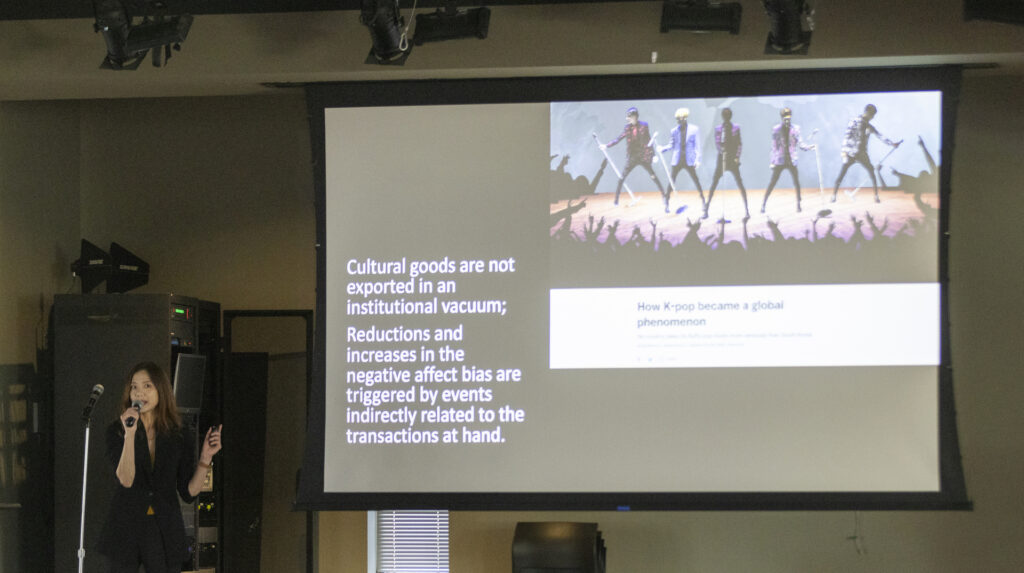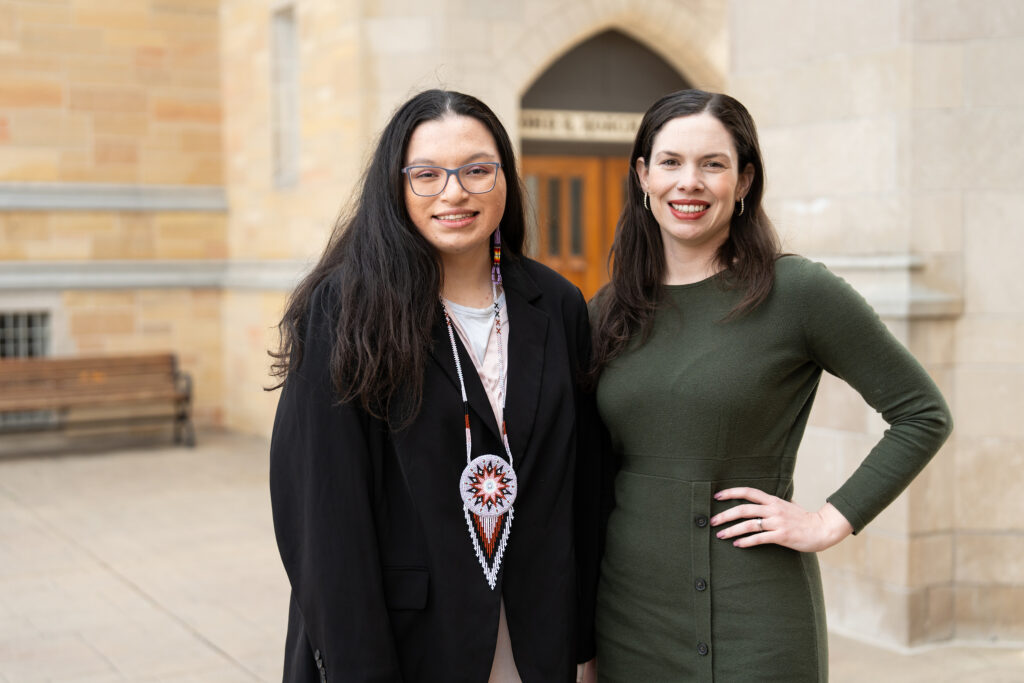As a person who “lives and breathes entertainment,” University of St. Thomas Assistant Professor of Entrepreneurship Shinwon Noh’s latest research is a fusion of academia and pop culture. Noh, along with three co-authors, analyzed the international popularity of K-pop. That combination of pop, R&B and hip-hop music coming from South Korea, made popular by groups including BTS and BLACKPINK, has exploded beyond its home country.

The Opus College of Business faculty member and her co-authors set out to determine the impact business investment has had on K-pop’s rising popularity.
“This topic has been underexplored in the international business field unfortunately, so we’re trying to provide some explanations for the mechanisms behind this catch-up of cultural products from the non-mainstream emerging markets such as Korea or India,” Noh said.
They found that foreign direct investment (FDI) positively affects cultural exports. FDI is a form of international investment involving a nation establishing an interest in another nation. Examples include Korean companies Samsung and Kia operating facilities in U.S. cities.
“Our hypothesis is that audiences in cities (where there is FDI) will feel more familiar with the Korean brand and that any potential negative bias against Korean culture products will be neutralized by the presence of Korean foreign direct investment,” Noh said.
To conduct their research, the team looked at data from 710 cities across the U.S. from 2018-21.
The team found two moderators to the impact of FDI on K-pop popularity. First, the connection between FDI and K-pop popularity is stronger in cities with a higher level of openness to globalized cultural content. Second, researchers found that the link between FDI and K-pop popularity is weaker in the cities with a higher number of COVID-19 cases.
“(The second finding) was a bit of a surprising one to us,” Noh said. “It was not necessarily unexpected, though, as we are all familiar with the anti-Asian sentiment that has been associated with the COVID-19 pandemic.”
No. 1 hits in 3,000 cities worldwide
The research project started when Jeoung Yul Lee, a professor of business management at Hongik University in Korea, came across a website, Music Borders, that had a data set of No. 1 hits in 3,000 cities worldwide. One song that Lee noticed was “Butter” by BTS, which was No. 1 not only in Korea but in Japan, a large part of North America, Canada, Middle Eastern countries and some European countries at the same time.
Lee reached out to initiate a collaboration.

Shinwon NoHIt was obvious from the data set that K-pop was getting more and more popular.”
“It was obvious from the data set that K-pop was getting more and more popular,” Noh said. “As Koreans, we had been familiar with the rise in popularity of this music genre. The data set confirmed the trend. That got us intrigued by this phenomenon, really wanting to provide scientific explanations for the popularity of K-pop from a business perspective.”
Lee and Noh collaborated with two other researchers: Jooyoung Kwak, professor of international business at Yonsei University in Korea, and Alain Verbeke, professor of management at the University of Calgary in Canada.
“It was truly meaningful because I learned how to collaborate with people who have different areas of expertise,” Noh said. “The reason that we got together was the common denominator of passion for the cultural industry.”
One co-author had access to the massive data set, while another was known for expertise in international business theories. The third co-author, Verbeke, is a prolific and prominent scholar in international business literature.
Noh has worked on research projects ranging from Netflix to art museums; this is her first time working on a project related to the Korean culture.

“Although the process of analyzing the data and writing the manuscript was excruciating, I incredibly enjoyed the process because of my personal connection to the project,” Noh said.
Beyond academic journals
The research is under consideration to be published by a journal. The team also plans on sharing their research with the broader business public.
Noh is one of three inaugural principled leadership fellows from the Melrose and The Toro Company Center for Principled Leadership at Opus College of Business. As part of the fellowship, she is encouraged to find platforms where more people can access her research findings beyond just academic journals. Noh will be a guest on Christopher Michaelson’s “Work in Progress” podcast this summer. Michaelson is the academic director of the center.
“The center has provided us fellows a range of support,” Noh said. “We have met regularly to provide feedback on each other’s projects, which has been great moral and intellectual support. The center emphasizes the connection between our academic research and societal impact.”
In the future, Noh sees K-pop continuing to be successful, assuming that there still is Korean government support.
“Much of the global success of the Korean pop industry can be attributed to investment by the Korean government,” Noh said. “That played a huge role 20 years ago and now it’s paying off.”
Noh presented her research at the recent Faculty Lightning Talks event.






